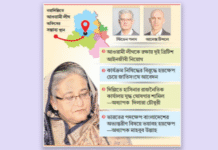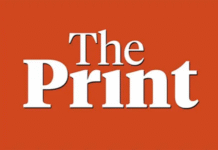By John Bechtel and Imran Vittachi on Feb 09, 2021 Benar News
Updated at 2:42 p.m. ET on 2021-02-10
Bangladesh’s army chief met with U.N. officials in New York on Tuesday, a spokesperson confirmed, days after rights groups urged the United Nations to review ties with the world’s top provider of peacekeepers in light of a recent media report alleging corruption in its security forces.
The head of United Nations Peace Operations brought up “allegations from recent media investigations” during his meeting with Bangladeshi Gen. Aziz Ahmed at U.N. Headquarters, a U.N. peacekeeping spokesman told BenarNews.
“On Tuesday afternoon, the Under-Secretary-General (USG) for Peace Operations, Jean-Pierre Lacroix, met with Bangladesh chief of Army Staff, General Aziz Ahmed, as part of a routine meeting with defense personnel from countries that contribute personnel to our operations. The meeting, which took place virtually, was requested by Bangladesh,” the spokesperson said.
“USG Lacroix discussed Bangladesh’s contributions to peace operations and the country’s support to meet peacekeeping challenges,” according to the spokesperson.
The spokesperson noted that the under-secretary general paid tribute to Bangladeshi keepers who had been killed or injured in the line of duty, including in a recent attack by Islamic extremists in Mali.
The visit by Gen. Aziz took place a little over a week after Al Jazeera published a TV news documentary and reports, which were based on a two-year investigation into his family and its connections with Prime Minister Sheikh Hasina.
The reports by the Qatar-based news organization linked him and at least one of his brothers to allegations of corruption, including a military purchase of Israeli-made surveillance equipment despite a Bangladeshi trade ban with the Jewish State.
“USG Lacroix recalled the allegations from recent media investigations as well as what the spokesperson of the Secretary-General has recently said on this matter,” the statement from the U.N. peacekeeping spokesperson went on to say but without going into more detail.
Atul Khare, the under-secretary-general of Operational Support, and other U.N. officials met separately with Aziz on Tuesday to talk about operational support elements of Bangladesh’s contributions to peace operations, the spokesperson said.
Al Jazeera aired its documentary on Feb. 1, after Gen. Aziz began a visit to the United States where he met with U.S. Army officials in Washington last week before heading to New York for his meeting with U.N. officials.
Among other things, it alleged that he was protecting his brothers who had fled abroad after being convicted of murder.
The investigative report secretly filmed one of the general’s brothers saying that he “can deploy Bangladesh security forces for his own personal and political purposes, including the Rapid Action Battalion (RAB),” an elite paramilitary unit, human rights groups alleged.
On Friday, Human Rights Watch and six other rights advocacy groups, citing the Al Jazeera investigation, called on the U.N. to postpone any talks with Bangladeshi officials about augmenting Bangladesh’s contribution to U.N. Peacekeeping Operations. Bangladesh is the biggest contributor of uniformed troops to those operations.
“Discussions about increasing Bangladeshi troop deployments in U.N. missions should be put on hold pending the results of the U.N.’s comprehensive review of its ties with the military,” the rights groups said in a joint statement.
They were alluding to an earlier statement from the Bangladeshi military that the general’s visit to U.N. Headquarters “was to play an important role in increasing the number of Bangladeshi U.N. peacekeepers.”
The report also alleged that the military had secretly purchased surveillance equipment manufactured by an Israeli company which, according to Al Jazeera, listed Hungary as the country of origin. Al Jazeera claimed that Gen. Aziz’s brother, Haris Ahmed, was a key figure in the deal.
The Bangladesh Army rejected the claim.
“The truth is the equipment was procured from Hungary for one of the army contingents due to be deployed in the U.N. Peacekeeping Mission,” said Rashadul Alam Khan, assistant director of the Inter Service Public Relations Directorate at the Ministry of Defense.
“Nowhere in the equipment was mentioned/written that these were of Israeli origin. There is no scope of defense co-operation/procurement from Israel since Bangladesh does not have any formal diplomatic relation with the country.”
Days later, the U.N. called for an investigation into the Al Jazeera allegations.
“The allegations of corruption is a serious matter that should be investigated by the relevant authorities,” Stéphane Dujarric, spokesman for the U.N. Secretary-General, told reporters last week.
Every peacekeeping operation in which Bangladesh participates is governed by an agreement laying out the world body’s specific requirements, he added.
“The U.N. has not identified in any of these agreements a requirement for the capability provided by the operation of electronic equipment in the nature described by Al Jazeera in its documentary,” Dujarric said during a daily press briefing on Feb. 4. “And such equipment has not been deployed with Bangladeshi contingents in U.N. peacekeeping operations.”
This report has been updated to include new quotes by U.N. officials.









